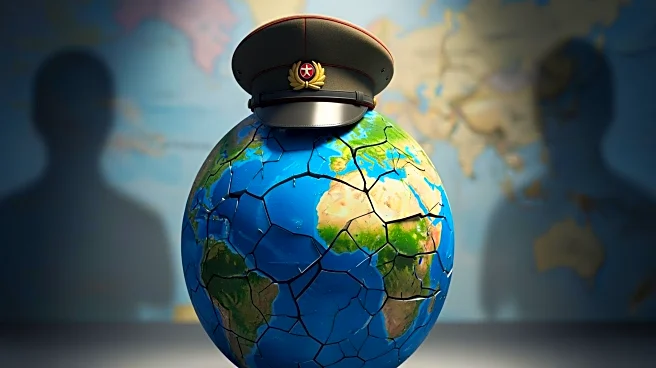What's Happening?
The United Nations has condemned the recent military takeover in Madagascar, where Colonel Michael Randrianirina, who led the coup, is set to be sworn in as president. The coup follows three weeks of anti-government protests driven by young people frustrated
with government failures, poverty, and corruption. The protests, known as 'Gen Z Madagascar,' have drawn comparisons to youth-led movements in other countries. The African Union has suspended Madagascar, rejecting the takeover. Randrianirina plans to lead a council of military officers for up to two years before elections are held.
Why It's Important?
The military takeover in Madagascar has significant implications for the region's stability and governance. The UN's condemnation highlights concerns about the erosion of democratic processes and the rule of law. The suspension by the African Union further isolates Madagascar, potentially impacting its international relations and economic aid. The coup reflects broader regional challenges, including political instability and economic hardship, which could influence other nations facing similar issues. The situation underscores the importance of addressing youth grievances to prevent further unrest.
What's Next?
Colonel Randrianirina is expected to be sworn in as president, leading a military council for up to two years. The international community, including the UN and African Union, may increase pressure on Madagascar to restore constitutional order. The situation could lead to diplomatic efforts to resolve the crisis and support democratic governance. The response from Madagascar's citizens and political groups will be crucial in shaping the country's future, with potential for continued protests or negotiations for a peaceful transition.
Beyond the Headlines
The coup in Madagascar raises ethical and legal questions about military involvement in governance and the legitimacy of power transitions. It highlights the challenges of balancing security and democratic principles in regions with historical instability. The situation may prompt discussions on international intervention and support for democratic institutions. Long-term, the coup could influence regional dynamics, affecting neighboring countries' approaches to governance and youth engagement.
















